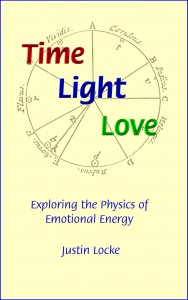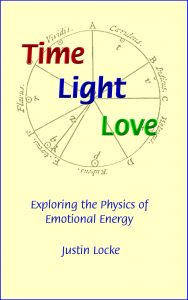What I’m going to talk about today is normally not discussed in public forums, as it goes way past most people’s comfort zones. It has to do with the somewhat nefarious job of manipulating emotions and actions of large numbers of people, also known as producing propaganda.
The average human being walks around with a somewhat self-congratulatory concept of themselves as being a fairly logical and intelligent being. It’s a pleasant image, and I like to indulge in such things myself from time to time, but this is not how things actually work. You may feel insulted by this article, but my intentions are good.
When one is tasked, as I often once was, with creating, well, call it what it is, propaganda, I became very goal oriented. I wasn’t too terribly concerned with unintended side effects, or even ethics for that matter. My goal was to create a specific emotional response using visuals, words, and music that would generally lead to people acting this way or that. I was tremendously amoral about my work. I needed the money, and I vas only followink orders. I fear that most of the people who do this work feel the same way.
When you do this kind of work, you get very pragmatic. You don’t think about how things ought to be. You think about how things actually are. You observe human beings with a hard cynical eye. You do what you have to do to get the job done, with any tool you can find.
There are many tricks of the trade, but here’s one that seems to be near or at the top of the list: It has to do with what I call the protection reflex instinct.
Dogs, bees, and primates live in social groups, and we understand that our individual survival is dependent upon the survival of the group. When we perceive a threat to the group, we react instinctually to protect the group. Even cats, not social animals per se, will react violently if you threaten their kittens.
It is an extremely common mistake to assume we are logical creatures, and our protection instinct is not the dominant force in guiding our actions. This denial makes us extremely susceptible to being manipulated by those of us in the propaganda industry who do understand its force.
For example, if I want you to vote a certain way, or maybe buy a certain product, I’m not going to bother with making logical arguments. Instead, I’m going to present to you a scenario of imminent danger that will cause your protection instinct to overwhelm any rational logical thinking.
Oddly enough, these scenarios are usually not a threat specific to yourself. These implied threats are much more effective if they are a threat to something that represents an element of the higher group’s cohesion. You are far more likely to protect the group than yourself. It can be protection of an ideal, a ritual, a favorite myth, belief, a concept, a tradition, a child, or a “right.”
Animals are willing to sacrifice themselves individually for the survival of the group, and we are animals. Your protection instinct, particularly your instinct to protect those in the group who are weaker, is an extremely powerful force. For those seeking maximum personal power, it’s too tempting a vulnerability to leave unexploited.
It would become rather tedious to list all the many threats that people manufacture to manifest protection reactions. You go back a hundred years, there were anarchists, then there were fascists, then there were Communists, and now we have the threat of terrorists. And Socialists. Drugs. The war on Christmas.
Perhaps the best example of the power of protection instinct is Pearl Harbor. For 12 years, endless efforts had been made to end the Great Depression, all to little or no avail. But when Japan attacked Pearl Harbor, our protection instinct overrode all of the other forces of mistrust that were causing internal dissension and economic problems.
Whenever a dictator seeks to motivate the populace to go to war, there’s a need to manufacture an “incident” of sneak attack that justifies protecting ourselves.
And now, whether you are grouped into the handily created simple categories of being on the “left” or the “right,” there is grab bag of threats that can be used to manipulate either group on a grand scale by knowing which group will react to which threat. And once you create a threat, you get to declare war and get lots of money for waging it. “Reefer Madness” was a perfect example– look at all the efforts being made to protect us from drugs. The cure is worse than the disease, but it is very hard to make a logical argument when the protection reflex instinct has been invoked.
The manufactured threats that invoke the protection instinct offer yet another bonus: we confer higher social status on those who are willing to go face a threat. We like threats because facing them gives us a sense of status, importance, and purpose. Facing a threat to a loved one is a very popular expression of that love. Thus, if no threat exists, there is motivation to create one.
Part of the problem of the greater intellectual discourse is that in order to sell a school of thought, it is important to massage the ego of the audience can tell them how clever they are. The three rules of manipulation are that people like to feel 1) morally superior, 2) intellectually superior, and 3) they like to feel they are socially accepted. When you know these rules, it’s very easy to get people to buy things they don’t really need.
I realize I sound terribly cynical, and if you have a fairly high-minded image of yourself, my comments will distress you. But it is very dangerous to think that potential for evil does not exist in every one of us. History teaches that this is so. But even then, while sycophantic comments and flattery have tremendous effect, in laying out the science of manipulating the masses for fun and profit, the protection instinct is probably the most powerful emotional force that one can use.
So as you go about your daily routine, just remember, there are people like me sitting in editing suites with oodles of money to buy airtime, thinking up some new version of the weapons of mass destruction.
Entire nations, including our own, are formed largely for the purpose of protecting us from outside threats. If the outside threats ceased to exist, the reason for maintaining the nation state becomes wobbly. Hence, nation states must continually seek justification in terms of emphasizing external threats to maintain social cohesion.
So the next report you hear of an enemy of the day at the gates, it’s hard, but take a minute and ask, is this really a serious threat to survival of the group? And by the way, who will profit from the protection reflex reactions of the electorate?
I don’t do this work any more, but every day I see the work of those who took up where I left off. I am fortunate that I have the literacy to see thru their efforts, but sadly we all live in a society where most do not.
– Justin Locke


